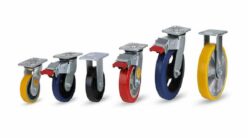 Businesses have an important responsibility to be mindful of their energy use and look for ways to conserve resources. This blog post will outline seven winter energy conservation tips that businesses can use to save money, increase efficiency, and reduce their environmental footprint.
Businesses have an important responsibility to be mindful of their energy use and look for ways to conserve resources. This blog post will outline seven winter energy conservation tips that businesses can use to save money, increase efficiency, and reduce their environmental footprint.
When it comes to winter energy conservation, businesses should take a proactive approach suggested by Business Energy Comparison and start planning in the fall. By taking the time to make sure their buildings are properly insulated, their windows are energy efficient, and their appliances are up-to-date, businesses can significantly reduce their energy costs during the winter months.
Tip 1: Reduce Heating Loads
One of the most important things businesses can do to conserve energy during the winter months is to reduce their heating load. This can be done by installing energy efficient windows, properly insulating the building, and using programmable thermostats. Additionally, businesses should make sure to close curtains and blinds at night and on particularly cold days to keep heat in the building.
Tip 2: Utilize Natural Light
During the winter months, businesses should take advantage of natural light as much as possible. This can be done by properly positioning furniture and workstations to make the most of natural light, and using light tubes or skylights to capture more of the available sunlight. Additionally, businesses should use task lighting to reduce the need for overhead lighting and minimize energy consumption.
Tip 3: Choose Efficient Lighting
Lighting is critical for businesses, but it can also be a major energy drain. To reduce energy consumption, businesses should choose LED or CFL lighting whenever possible and use motion sensors and timers to control when lights are used. Additionally, businesses should consider installing occupancy sensors to automatically turn off lights when rooms are not in use.
Tip 4: Use Smart Appliances
Businesses can save energy and reduce their utility bills by switching to smart appliances, such as refrigerators, washing machines, and dryers. These appliances are designed to automatically adjust their settings to maximize efficiency and reduce energy usage. Additionally, businesses should look for Energy Star certified appliances, which are designed to be more energy-efficient than standard models.
Tip 5: Upgrade Insulation
Good insulation is essential for businesses to reduce energy costs during the winter months. Businesses should inspect their insulation and upgrade to more efficient materials if necessary. Additionally, businesses should replace old windows with energy-efficient models and fill any gaps or cracks in the building to prevent heat from escaping.
Tip 6: Invest in Energy Audits
An energy audit is a great way for businesses to identify areas where they can save energy and reduce their utility bills. An energy audit will provide businesses with an objective assessment of their energy usage and offer practical recommendations for improvement. Additionally, businesses should consider investing in renewable energy sources, such as solar panels or wind turbines, to reduce their reliance on traditional energy sources.
Tip 7: Monitor Energy Usage
Finally, businesses should monitor their energy usage to ensure that they are following all of the above tips and taking full advantage of energy conservation opportunities. By tracking energy usage, businesses can identify areas where they can make improvements and take action to reduce their environmental impact. Additionally, businesses should consider setting energy efficiency goals and incentives to motivate employees to reduce energy consumption.
Conclusion
Winter is an important time for businesses to focus on energy conservation. By following these seven tips, businesses can save money, increase efficiency, and reduce their environmental footprint. Taking a proactive approach to winter energy conservation is the key to success, and businesses should start planning in the fall in order to maximize their energy savings.





